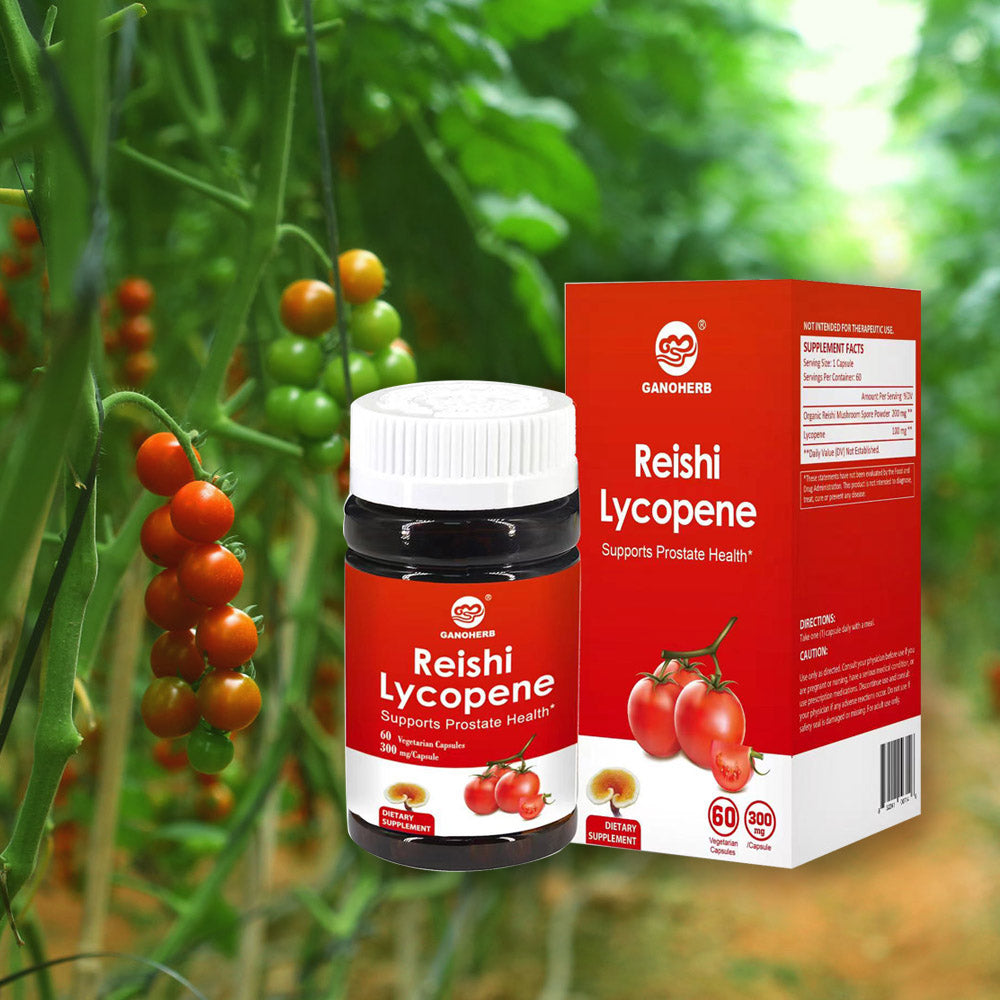Ganoderma Coffee: What Sets This Brew Apart from Your Daily Cup?
I remember the first time I stumbled upon ganoderma coffee at a local café. The barista described it as a unique twist on my usual order, and out of curiosity, I gave it a shot. The experience was unlike any coffee I'd had before—earthy, rich, and with a depth that made me want to learn more. If you've been hearing about ganoderma coffee and wondering what the buzz is all about, you're in the right place. In this article, we'll take a close look at what makes ganoderma coffee stand out, covering everything from how it's made to its taste and practical aspects like cost and who might enjoy it. We'll keep things straightforward, focusing on the facts without diving into any claims. So, grab your favorite mug, and let's explore the world of ganoderma coffee together.

What Is Ganoderma Coffee and How Did It Start?
Ganoderma coffee is essentially a blend of traditional coffee and extracts derived from the ganoderma mushroom. This combination results in a beverage that has been gaining attention in recent years, particularly among those looking to try something different from their regular coffee routine. The origins of ganoderma coffee trace back to the use of ganoderma in various cultural practices, where it was valued for its unique properties. Today, it's produced by companies that specialize in merging herbal elements with coffee, aiming to offer a distinct drinking experience. The term ganoderma coffee itself refers to this specific fusion, and it's become a popular item in specialty stores and online markets. As you explore this drink, you'll notice that it's not just about the caffeine kick—it's about the layers of flavor and the process behind it.
The Production Process of Ganoderma Coffee
The making of ganoderma coffee involves several steps that ensure a consistent and high-quality product. It all begins with the cultivation of ganoderma mushrooms, which are grown in controlled environments to maintain purity. Once harvested, the mushrooms undergo an extraction process where their essences are carefully drawn out. This extract is then blended with coffee beans—often arabica or robusta varieties—to create a balanced mix. The blending phase is crucial; manufacturers use techniques to ensure the ganoderma component integrates smoothly without overpowering the coffee's natural profile. Some brands might roast the coffee beans alongside the ganoderma extract to enhance flavor cohesion, while others mix them post-roasting. The final product is packaged to preserve freshness, often in airtight containers. This attention to detail in production means that when you brew a cup of ganoderma coffee, you're getting a beverage that's been crafted with care from start to finish.
Flavor Characteristics of Ganoderma Coffee
When it comes to taste, ganoderma coffee offers a profile that sets it apart from standard coffee. Many drinkers describe it as having an earthy undertone with a slight bitterness that complements the coffee's robustness. The ganoderma element can introduce herbal notes, reminiscent of woodsy or forest-like aromas, which might appeal to those who enjoy complex flavors. Depending on the blend, some versions of ganoderma coffee have a smoother finish, reducing the sharpness often associated with strong coffee. Others might retain a bold coffee base with the ganoderma adding a subtle layer that doesn't dominate. If you're used to the straightforward taste of regular coffee, trying ganoderma coffee could be an interesting sensory experience. It's worth noting that the flavor can vary between brands, so sampling a few might help you find one that suits your palate.
Potential Drawbacks of Ganoderma Coffee
While ganoderma coffee has its admirers, it's not without its downsides. One of the most common issues is the cost; due to the additional steps involved in production, ganoderma coffee tends to be pricier than conventional coffee. This can make it less accessible for those on a tight budget. Another drawback is the taste—the earthy, herbal notes might not resonate with everyone. If you prefer the simple, familiar flavor of traditional coffee, you might find ganoderma coffee off-putting. Additionally, availability can be a challenge; it's not as widely stocked in regular grocery stores, so you might need to seek it out online or in specialty shops. Some users also report that the texture can feel different, possibly grittier if not brewed properly. These factors mean that ganoderma coffee isn't a one-size-fits-all option, and it's wise to consider these aspects before making a purchase.
Factors to Consider When Choosing Ganoderma Coffee
If you're thinking about trying ganoderma coffee, there are several key points to keep in mind. First, check the ingredient list to ensure it contains genuine ganoderma extract and high-quality coffee beans. Look for brands that are transparent about their sourcing—for instance, some emphasize organic or sustainably grown components. The ratio of ganoderma to coffee can also affect the overall experience; a higher ganoderma content might intensify the earthy flavors, so choose based on your preference. Packaging matters too; opt for products that come in sealed bags or containers to maintain freshness. Brewing methods are another consideration; some ganoderma coffee blends work best with specific techniques, like French press or pour-over, to bring out their full character. Finally, read reviews or seek recommendations to gauge what others think—this can help you avoid disappointing buys and find a ganoderma coffee that aligns with your tastes.

Evaluating the Cost and Value of Ganoderma Coffee
When assessing whether ganoderma coffee is worth the investment, it's helpful to compare it to regular coffee. On average, ganoderma coffee comes at a premium price, often due to the costs associated with ganoderma cultivation and extraction. A bag of ganoderma coffee might cost significantly more than a similar-sized bag of standard coffee, which could be a deterrent if you're budget-conscious. However, if you view it as a specialty item—similar to artisanal coffees—you might find the expense justified for the unique experience. Consider how often you drink coffee; if it's a daily ritual, switching to ganoderma coffee could add up, but if it's an occasional treat, the cost might be manageable. Some people feel that the distinct flavor and production process of ganoderma coffee offer good value, especially if they enjoy exploring new beverages. Weighing your personal priorities, like curiosity versus budget, will help you decide if ganoderma coffee is a smart choice for you.
Who Might Enjoy Ganoderma Coffee the Most?
Ganoderma coffee tends to attract a specific audience. Coffee enthusiasts who love experimenting with different blends and flavors often find it appealing because of its unique profile. If you're someone who enjoys herbal teas or other infused drinks, ganoderma coffee might resonate with your tastes due to its earthy elements. It's also popular among people who follow trends in the beverage industry and like to stay updated on new products. Additionally, those looking to diversify their coffee routine without straying too far from the coffee essence might appreciate ganoderma coffee as a middle ground. On the other hand, if you're a purist who sticks to classic coffee, it might not be your cup of tea. Ultimately, ganoderma coffee suits individuals open to novel experiences and willing to explore beyond the ordinary.
How to Incorporate Ganoderma Coffee into Your Routine
Integrating ganoderma coffee into your daily habits can be a simple process, much like brewing any other coffee. Start by choosing a ganoderma coffee blend that matches your taste preferences—perhaps one with a balanced coffee-to-ganoderma ratio. Brew it using your preferred method, whether that's a drip machine, espresso maker, or manual pour-over. Many people find that ganoderma coffee pairs well with morning rituals, offering a different start to the day. You can also experiment with adding milk or sweeteners, though some prefer it black to fully appreciate the flavors. If you're new to ganoderma coffee, try it gradually to see how it fits into your routine. Over time, you might discover that it becomes a regular part of your beverage lineup, especially if you enjoy its distinctive qualities.
Frequently Asked Questions About Ganoderma Coffee
Q1: What exactly is ganoderma coffee made from?
A1: Ganoderma coffee is a blend of coffee beans and extracts from the ganoderma mushroom, resulting in a beverage that combines the elements of both components.
Q2: How does the taste of ganoderma coffee compare to regular coffee?
A2: Ganoderma coffee typically has an earthy, slightly bitter flavor with herbal notes, which can be different from the straightforward taste of traditional coffee.
Q3: Is ganoderma coffee more expensive than other types of coffee?
A3: Yes, due to the additional processing involved in incorporating ganoderma extract, ganoderma coffee often comes at a higher price point compared to standard coffee.
Q4: Where can I purchase ganoderma coffee?
A4: Ganoderma coffee is available through online retailers, specialty health stores, and some cafés that focus on unique coffee blends.
Q5: Can I brew ganoderma coffee using my usual coffee maker?
A5: Absolutely, ganoderma coffee can be brewed with most standard coffee makers, such as drip machines or French presses, following the same steps as regular coffee.
In conclusion, ganoderma coffee offers a distinctive alternative for those looking to spice up their coffee experience. From its detailed production process to its unique flavor and practical considerations, there's a lot to uncover about this beverage. Whether you're drawn to its earthy notes or curious about the blend, ganoderma coffee might just become a new favorite in your cupboard. Remember, the best way to know if it's for you is to give it a try—you might discover a whole new dimension to your coffee routine.











